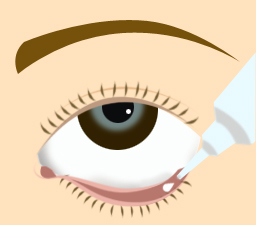
Instructions On Atropine Application For Optometry In Children
Why should children use Atropine sulfate ophthalmic gel prior to refraction test?
- The focus power of eye muscles in children is very strong. Atropine can relax the focusing muscles and allow for a more accurate measurement of refractive error in children.
- In particular, for children with high hypermetropia or esotropia (cross-eyed), their eye muscles must be thoroughly relaxed with atropine before undergoing refraction test.
How to use Atropine sulfate ophthalmic gel?
As a result of Atropine use, eyes are dilated but generally recover in four weeks.
What are the side effects after using Atropine ophthalmic gel? How to deal with the side effects?
- Light sensitivity. Light sensitivity is caused by dilated pupils. Children may wear sunglasses to reduce such discomfort. Light sensitivity will disappear as the pupils recover.
- Blurry vision (especially for near tasks). It gradually disappears. Children can return to school, but teachers should be aware of blurred vision while reading.
- Fever, dry mouth and skin, flushing of the face and a rapid pulse may be caused by vasodilator action of Atropine. They usually disappear in about 30 minutes. Atropine should not be used more than needed, and only a dosage the size of a grain of rice should be applied. If symptoms are severe or persist, promptly seek medical attention.
- Allergic reactions. Allergic reactions are rare, but include lid swelling, itchy and red eyes. If symptoms are severe or persist, promptly seek medical attention.
Copyright United Family Healthcare 2018 All right reserved ICP 京ICP备13017554号-4




